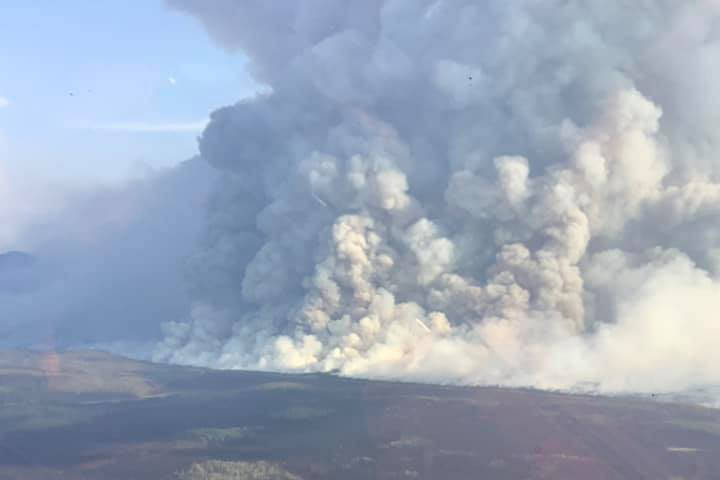Starting Friday, May 1, all burn permits are suspended by the Alaska Division of Forestry, and burning both large and small scale is not allowed.
The Division of Forestry took this step “in anticipation of the impacts of COVID-19 on on Alaska’s wildland firefighting resources this summer,” according to a press release from the division. Due to travel restrictions and quarantine requirements, the division anticipates a lack of firefighting resources from the Lower 48. Historically, Alaska has relied heavily on firefighting aid from Outside to supplement its own resources.
The suspension prohibits the use of any burn barrels, burning debris piles and any other “outdoor burning activity” that had been authorized under permits people already acquired. This applies to all private, state and municipal lands, according to the release.
“Any person or business found to be violating this burn permit suspension order may be issued a citation to pay a fine or appear in court,” the release states.
Certain things are exempt from the permit suspension and are allowed to continue. They include: cooking fires, warming fires, or signaling fires that are less than 3 feet in diameter with flames no more than 2 feet tall. Commercially manufactured outdoor cooking and heating devises with built-in open flame safety devices are also still permitted.
“Given the potential effects of COVID-19 on the upcoming fire season, Alaska’s wildland fire suppression agencies need the public’s help more than ever to keep firefighters and communities safe,” the release states. “Alaskans must do everything possible to prevent wildland fires, limit the spread of COVID-19, and protect firefighters and the public. The suspension of burn permits will help firefighting agencies mitigate some of the significant challenges they’re likely to face this summer.”
In addition to the anticipated lack of Lower 48 firefighting resources, the Division of Forestry sees potentially exposing Alaska firefighters to higher risks of contracting and spreading COVID-19 when responding to human-caused fires as a challenge that will be faced this summer.
Southeast Alaska is exempt from this permit suspension, according to a subsequent press release from the Division of Forestry. This is because “the region’s weather, fuel types and fire history put it at less risk of wildland fire than mainland Alaska,” the release states.
Burning that has been permitted will be allowed on state, municipal and private lands in Southeast Alaska, including the city of Cordova.


